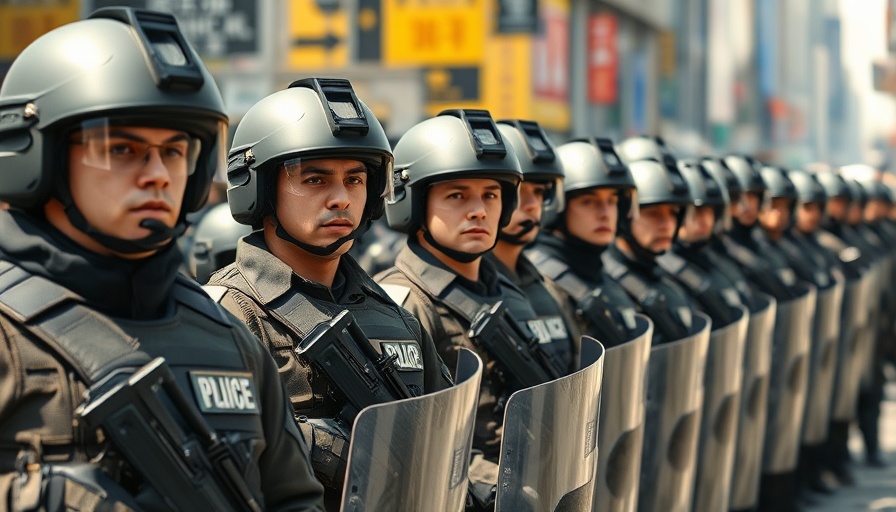
Legal Landmark: A Landmark Decision on Military Authority
In a critical legal ruling, U.S. District Judge Charles Breyer decided that the Trump administration's actions in deploying military forces in Los Angeles were illegal under the Posse Comitatus Act. This law has been a bulwark against military involvement in civilian law enforcement affairs since its enactment in 1878, serving as a vital check on the power of the executive branch. Judge Breyer’s 52-page ruling reinforces the notion that the President, despite serving as Commander in Chief, does not have unfettered authority to utilize military force domestically.
Historical Context: Understanding the Posse Comitatus Act
The Posse Comitatus Act was established in the wake of the Civil War, primarily aimed at curtailing military enforcement of civilian laws and preventing the military from acting as a law enforcement arm of the government. Its origins lie in the public's deep-seated reluctance to allow the federal government to employ armed forces in domestic matters, a reaction to the abuses seen during periods of military reconstruction.
Implications of the Ruling: A Pushback Against Executive Overreach
Judge Breyer's ruling acts as a significant barrier to potential abuses of power by any future administration, marking a crucial moment of accountability for executive authority. By stating that military troops cannot execute laws in a manner that leads to crowd control, arbitrary arrests, or other law enforcement actions, the court emphasizes the distinct separation of military and police functions that the Posse Comitatus Act aims to uphold.
Future Trends: Will This Influence Policy Moving Forward?
As the appeals process unfolds, this ruling may spark broader debates about the role of the military within the United States. How will this shape future policies related to national security and civil liberties? Observers may expect to see heightened scrutiny on military deployments during civil unrest, especially as authorities consider the implications of using military might in domestic operations.
Public Sentiment: The Response from Citizens and Activists
The ruling is met with mixed reactions among the public and activists. Many citizens, particularly those engaged in civil rights movements, view this as a momentous victory affirming the importance of safeguarding civil liberties from military encroachment. Conversely, some may express concerns regarding public safety during protests, emphasizing the need for robust law enforcement measures.
Examining the Legal Landscape: Previous Cases and Their Relevance
It’s noteworthy to consider previous instances where the military was deployed domestically—an example being the National Guard’s involvement during the 1992 Los Angeles riots. Understanding these instances highlights the delicate dynamic between ensuring public order while respecting constitutional rights. This current ruling may chart new territory, influencing how historical precedents are interpreted in future legal scenarios.
Takeaway: The Importance of Upholding Constitutional Principles
This ruling serves as an essential reminder of the importance of maintaining checks and balances within government. Adhering to the Posse Comitatus Act is crucial in preserving democratic principles and the rule of law, ensuring that the military remains a force for defense rather than a tool for domestic enforcement.
The upcoming appeal process will be pivotal in determining whether this ruling holds or sets a precedent for military use in civilian law enforcement across the nation. Understanding these legal implications enhances public awareness and fortifies civic responsibility, reminding citizens of their essential role in safeguarding their rights.
 Add Row
Add Row  Add
Add 




Write A Comment